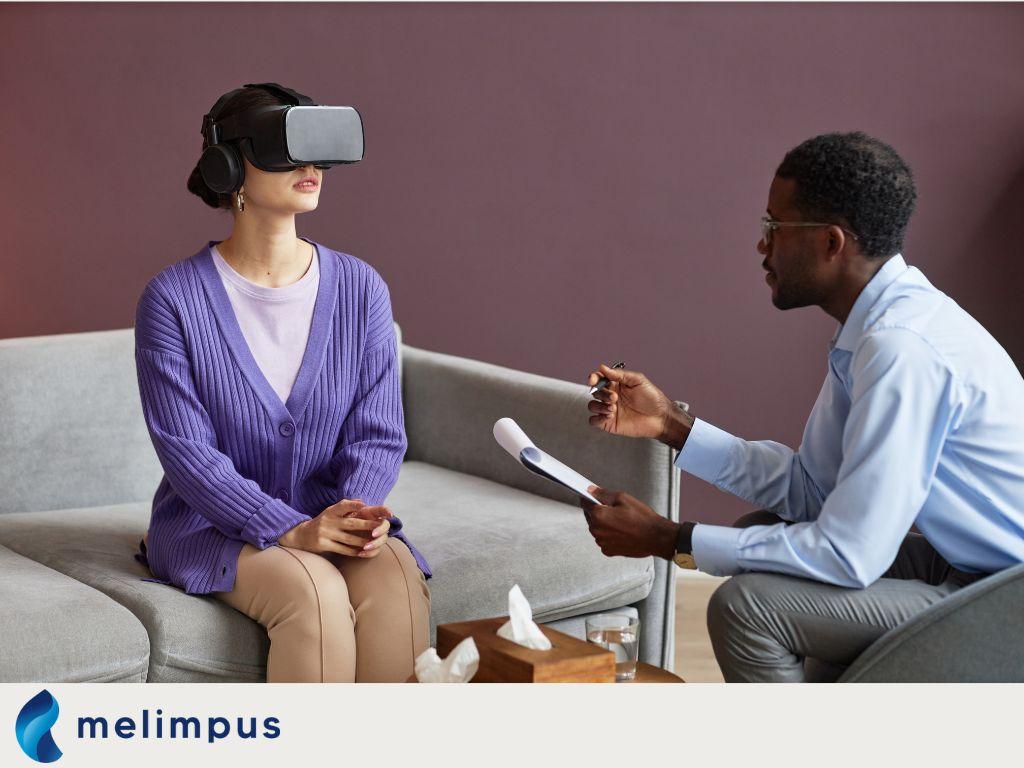Why Virtual Reality is becoming a go-to tool for psychologists

Three main applications validated by research
The growing body of scientific literature highlights three major areas where VR is used in psychology:
-
Exposure therapy for anxiety disorders: Whether it’s fear of heights, social phobia, or anxiety about returning to work after burnout, VR allows patients to confront their fears in a fully controlled environment.
“The goal is to gradually extinguish the anxiety while reinforcing the person’s sense of self-efficacy,” explains our psychologist.
-
Pain management through distraction: Diverting the patient’s attention into a virtual world reduces the perception of pain. This technique is used in palliative care, during painful dressing changes, and for severe burn victims.
-
Developing social skills: VR is also a training tool, especially for building soft skills in the workplace, supporting individuals with autism spectrum disorders, social interaction difficulties, or in professional reintegration contexts.
The results are promising across a wide range of issues: cognitive impairments, depression, addiction, autism spectrum disorders, Alzheimer’s disease, post-traumatic stress, and more.
Advantages of VR over in vivo exposure
Why choose virtual reality over traditional real-life (in vivo) exposure?
According to our psychologist, the answer is clear:
“VR allows for an unmatched level of personalization and control. You can tailor the environment to each patient: add or remove stimuli, repeat the experience as many times as needed—all in a safe space.”
Here are some concrete advantages:
-
Complete control over the therapeutic environment: No surprises—everything is under the therapist’s supervision.
-
Increased emotional safety: Patients know they are in a therapeutic setting, which makes confronting their fears easier.
-
Reduced avoidance: VR limits escape routes while making the experience more acceptable for patients.
-
Patient preference: “Many tell me they prefer starting with VR exposure rather than real-world exposure. It reassures them and makes the process more engaging.”
-
Cost reduction: No need to travel to specific locations or mobilize large logistical resources.
From the field: What patients say
Patient feedback is overwhelmingly positive. Some describe the experience as playful; others value being able to progress at their own pace without judgment.
“One of my patients with social phobia told me she would never have dared face a group directly, but in VR, she managed to do it… and was proud of herself!” shares our psychologist.
The immersive aspect enhances emotional engagement—without the stress of a real-life situation. For many, it becomes a springboard for deeper therapeutic work.
For example, one symptom of burnout is a loss of self-confidence regarding work. VR helps these individuals expose themselves safely and rehearse returning to work.
Toward more systematic use in the workplace?
Beyond psychologists' offices, VR could soon be used in companies to support employees with stress management, communication skills, or returning to work after burnout.
“I believe virtual reality holds immense potential for prevention and professional development. It could help resolve certain blocks before they become pathological,” concludes our psychologist.
In response to growing demand for innovative mental wellness solutions, VR may soon become a routine support tool—both in clinics and in companies.
How can Melimpus help you?
Melimpus specializes in supporting employees returning to work after long absences. Gradual exposure through virtual reality helps individuals confront symptoms of burnout such as low self-confidence. This approach has been validated in several clinical studies.
Feel free to share your experiences or ask questions in the comments—our psychologist will be happy to respond.

